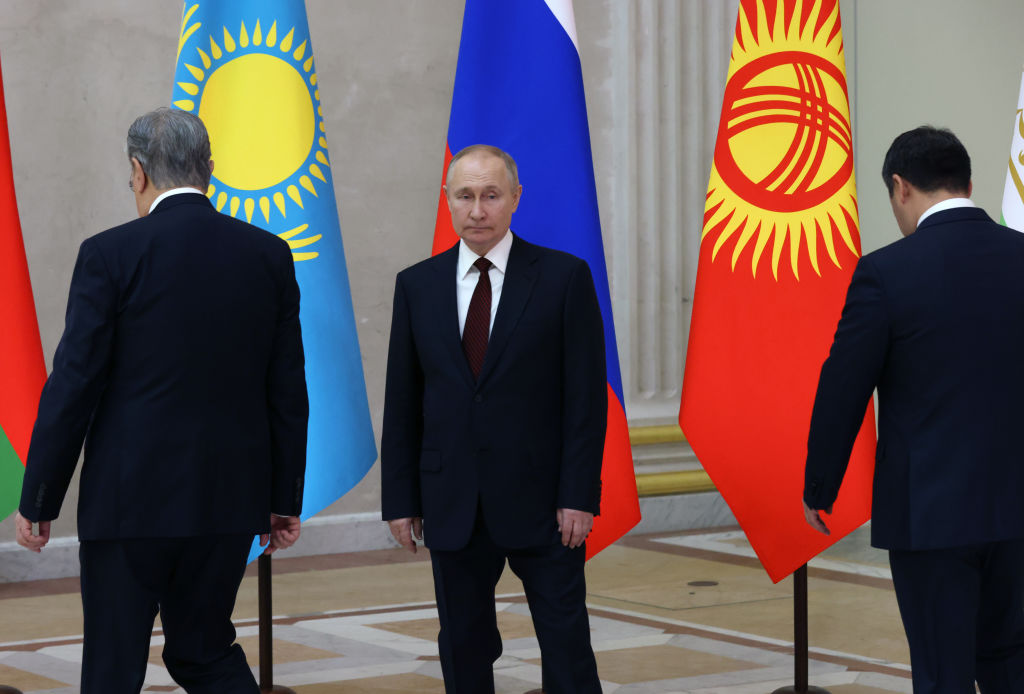
Now that Russia has been so greatly damaged and diminished by President Vladimir Putin’s reckless war of choice in Ukraine, what might the country’s future hold? Plausible scenarios range from a power grab by a hard-line security adviser like Nikolai Patrushev to an election victory by a dissident like Alexei Navalny. But one thing is almost certain: Putin’s regime will not survive the war he started.
After all, Putin’s so-called power vertical may span many economic and political domains, but it is fully dependent on tight control from the top. The entire structure will invariably start to fracture as that control is weakened, and as different groups and interests start manoeuvring to scoop up the spoils from the inevitable collapse. The system’s main strength—all-powerful top-down control— will become its fatal weakness.
This new ‘time of troubles’—a recurring theme in Russian history—will follow immediately from Putin’s departure. But which political forces will assert themselves as he falls remains to be seen. My guess is that the impetus to continue Putin’s Ukraine misadventure will be quite limited. Putin started the war himself, and we know that even his top security officials were never enthusiastic about it. That was obvious as early as the famous televised Kremlin security-council meeting held on 21 February.
Even after a year of relentless repression and propaganda, Russian public support for Putin’s war is lukewarm, at best, with opinion polls showing that a majority favours peace talks. Any leader or faction that emerges after Putin will have to make it a priority to end the war rapidly.
True, this does not mean that it will be easy to stop the fighting, let alone return to the pre-invasion status quo ante. There will inevitably be some voices calling for an even more aggressive imperialist agenda, and they will be desperate to prevail, for fear of their lives and livelihoods. But in a situation where public opinion clearly supports ending the war, Putin’s power vertical is disintegrating and the Kremlin’s repressive machinery is in disarray, the jingoists will be fighting an uphill battle.
Times of troubles have historically produced demands for more representative governance. The final decades of tsarism, for example, were dominated by calls for a democratic constitution, and similar projects were pursued in the years following the collapse of the Soviet Union. There is no reason to think that this time will be different.
Yes, it is not especially likely that Russia’s democratic opposition will emerge from prison and exile to sweep to power. But that does not mean this movement should be neglected. Even under highly repressive and unfair circumstances, Navalny supporters have managed to win 20–30% of the popular vote, and his support from younger and more urban voters has grown only stronger with time. The Navalny YouTube channel reaches tens of millions of people with news and current-affairs programming, and that number is even larger when one adds broadcasting by other independent media.
One exceedingly unlikely outcome is a breakup of the Russian Federation. In its efforts to gin up support for the war, Putin’s regime has presented this scenario as an explicit Western goal. In fact, the West aims for nothing of the kind. When Chechnya declared its independence in 1991, there was never even a hint that Western governments would support it. And though the Chechnya issue will remain contentious, a Western endorsement of Chechen independence still would never happen.
Speculation about independence for the Far East and Siberia is equally groundless. Recall the large public protests in Vladivostok in 2020. One could see Belarusian (opposition) and Ukrainian flags being flown as symbols of democracy; but the protesters had no illusions about achieving independence for a massive, thinly populated area so close to China.
In any case, there is now every reason to assume that elites within the Russian power structure are already discreetly exploring their country’s post-Putin possibilities. With another presidential election coming in 2024, the country’s political future is a legitimate and urgent topic for debate.
Russia’s fate ultimately will be decided by its people. Bringing about regime change is a task for them alone. But that does not mean the West should refrain from influencing the outcome. On the contrary, Western policymakers should be seeking ways to create the conditions and incentives for more democratic-minded forces to prevail. Putin is not immortal—and his political frailty is becoming more evident by the day.

